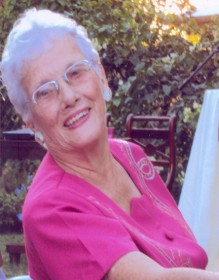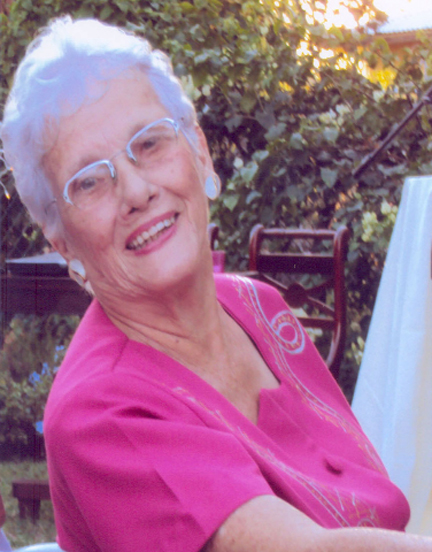Phyllis Carter,
December 9, 1932 – January 28, 2010
Phyllis Carter, née Howard, widow of the National Poet Martin Carter and member of the Committees of the National Gallery of Art and the Cheshire Home, died on January 28 aged 77.
Phyllis Howard had just turned 21 in January 1953 when she married her childhood friend Martin Carter whom she had known since she was ten years old. Neither she nor her husband could have foreseen the momentous events that would change their lives and the country later that year.

1953 was no ordinary year in Guyanese history and the groom was no ordinary man. Martin Carter by that time had already established himself as a leading member of the left wing of the left wing party – the original People’s Progressive Party. The PPP won the largest number of seats for the Legislative Council in the general elections in April 1953 and nominated six members to the Executive Council. Less than five months later, however, the British government declared a state of emergency, suspended the constitution, expelled the elected ministers and sent in the Royal Welsh Fusiliers.
As part of a campaign of arrests, raids and searches, five members of the party – Martin Carter, Sydney King (now Eusi Kwayana), Bally Lachhmansingh, Adjodha Singh and Richard ‘Rory’ Westmaas – were detained without charge or trial at the former US airbase at Atkinson Field (now Timehri). That experience did have at least one completely unanticipated cultural consequence.
Detention inspired Martin Carter who had already written some poetry to express his passion in verse. Some of what he wrote was collected and published in 1954 as Poems of Resistance – one of the most significant anthologies to emerge in this country and one that established the poet’s reputation in the Caribbean. It also sealed the matrimonial bond between the husband and his young wife, as the touching tone of Letter 2 attests:
O my darling
O my dear wife whose voice I cannot hear.
Tell me, the young one, is he creeping now
and is he well and mischievous as ever?
Or is the cloud so heavy on the land
too deep for him to see the wonderful sky?
I send a kiss to tell you everything
about today the twentieth in the distance.
It was Phyllis’s subversive task to smuggle ‘illicit’ letters to and from Martin on her visits to him. Some of his scribbled notes were, in fact, poems. The detainees embarked on a hunger strike and were released after 81 days in January 1954 just in time for Phyllis’s first wedding anniversary. That wasn’t all. Martin was still prohibited from travelling out of his district of residence and was required to report to the police twice every week.
Phyllis had moved into her husband’s family home in Anira Street, Queenstown, Georgetown after her marriage. It so happened that two other PPP executive officers lived nearby. Dr Cheddi Jagan himself lived in Laluni Street, one block away, and Rory Westmaas lived in Crown Street, one block further on. All three – Carter, Jagan and Westmaas – became persons of interest to the security forces.
As the state of emergency continued through 1954, the PPP launched a campaign of civil disobedience during which certain acts of terror – including the dynamiting of the statue of Queen Victoria in the High Court compound – occurred. The colonial government blamed the PPP for the terror and repression intensified. Quiet Queenstown buzzed with uncommon commotion as troops and policemen would frequently swoop on the Carter’s home and other places in the neighbourhood in search of incriminating evidence.
Phyllis Carter would recall calmly, but without rancour, “Nineteen fifty-three was a difficult time. In fifty-three, it was what we used to say was ‘the bad time.’ The soldiers came and they were outside the house… they were lined up all at the gate…”
Her unsettled first year of marriage could not have been more unlike her unruffled upbringing. Born in Forshaw Street, Queenstown, her father Harry Aubrey Howard was a career civil servant who eventually became an Assistant District Commis-sioner. He served on the East and West Coast Demerara and on the Essequibo Coast. It was while living on the East Coast that Phyllis first met Martin who would cycle up to their home with her three brothers who were his school-friends.
Martin’s father Victor Emmanuel Carter was also a civil servant. He worked in the Medical Department and became Assistant Superintendent and Steward at the Leper Asylum (now the Cheshire Home) at Mahaica and the Public Hospital in Georgetown. Martin’s mother, Violet Eugene, née Wylde, was a certified nurse and registered midwife. Both families were steeped in the tradition of public service. The tenor of everyday life in their households, a blend of propriety and humanity, was reflected in the children’s adult characters.
Martin Carter, Rory Westmaas and others quit the PPP in protest against Cheddi Jagan’s accusatory 1956 congress address. Thereafter, Martin’s employment went through several changes – from civil servant to schoolteacher, Chief Information Officer of the Booker Group of Companies, Minister of Information and Culture in the People’s National Congress administration serving on Guyana’s delegation to the UN General Assembly and, finally, to the University of Guyana where he was successively Artist-in-Residence, Senior Research Fellow and Reader.
Phyllis held a steady job at St Joseph Mercy Hospital where she had been trained and specialized in paediatric nursing. She soon had four children to bring up and was obliged to master the economics of managing the household. By this time, she had learnt that her husband cared little for money and, indeed, never even owned a wallet. She was inured to his idiosyncracies – compulsively scribbling verses on cigarette boxes, smoking, drinking and entertaining troops of friends.
Never well-to-do, Phyllis somehow earned a reputation for generosity, sociability and hospitality when the couple settled at a modest cottage on Lamaha Street in their familiar Queenstown. Writers, researchers and friends felt free to drop into the house in search of information or advice from Martin.
The couple seemed to have made a tactical decision to eschew overt participation in party politics as the country slid into the unsettled seventies. But they could not remain unaffected by the deterioration in political culture and public safety which prevented them from enjoying such simple pleasures as an evening stroll on the seawalls. Martin was moved to memorialise the murders of Fr Bernard Darke on July 14, 1979 with the poem Bastille Day and of Walter Rodney with For Walter Rodney the next year. Phyllis herself as a nurse was horrified to see the injuries to Fr Darke whose bleeding body had been taken to the St Joseph Mercy Hospital where she worked.
After 44 years of marriage, Martin died in 1997, a loss Phyllis Carter bore with strength and resolve. On that occasion, Marc Matthews paid tribute to her:
…Sister, Mother, Wife
I sing your patient generosity
I sing your courage that
knows well the genesis
of life’s journey to it’s end
knows well, too well that looking
is not seeing as knowing is
not feeling that heart of fire…
As her own children had all grown up, raised their own families and left the home, she lavished her magnanimity on the less fortunate children. Although she held official positions on the Committees of Management of the Cheshire Home and the National Gallery of Art, much of her charitable work was informal rather than institutional. Never wealthy by any means, she would work voluntarily with the Missionary Sisters of Charity to feed the droves of the destitute who had started to appear in Georgetown’s streets. A down-to-earth person, she quietly helped to pay for the school uniforms and textbooks of the children of the squatter settlement that, until recently, sprouted on the railway embankment in front of her home on Lamaha Street.
She remained close to the centre of literary activity in society but it was only after Martin’s death that she agreed to recite his work on rare occasions. There was a reason for this. Public acclaim for Martin’s poetry seemed to increase with his death with some of his words becoming so commonplace as to have attained the dubious status of cliché. Schoolchildren would memorise standard poems such as You are Involved, I Clench my Fist and University of Hunger.
The downside of this popularity, however, was that careless politicos, media personalities and events’ promoters who should know better would mistakenly attribute Martin’s work to others − Arthur Seymour, for example. Phyllis saw the threat in this trend and started to take greater care in preserving her husband’s work. She was encouraged to accept occasional invitations to recite one or two appropriate poems − such as Death of a Comrade − at funerals. In her later years, she participated in poetry-reading events. She committed herself to preserving Martin’s papers and library at the Carter Home which, hopefully, will now receive the protection of the National Trust.
The cardinal element in Phyllis’s worldview was the total absence of avarice and malice in her life. Because of her breeding and her beliefs, she saw others as essentially decent folk and thought instinctively and passionately that she should work for the common good. Life presented lots of challenges to this optimistic outlook but she never lost her sense of humour, her sense of proportion and her sense of humanity.
Phyllis Carter was born on December 9, 1932 in Queenstown. A committed Roman Catholic, she worshipped at the Holy Rosary Church in Kitty or the Our Lady of Fatima Church in Bourda, which conveniently were equidistant from her home in Lamaha Street. She married Martin on January 31, 1953 but he died on December 13,1997. They are survived by their four children.

